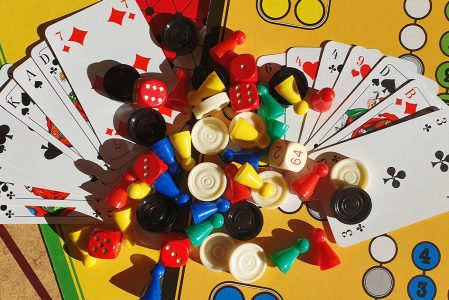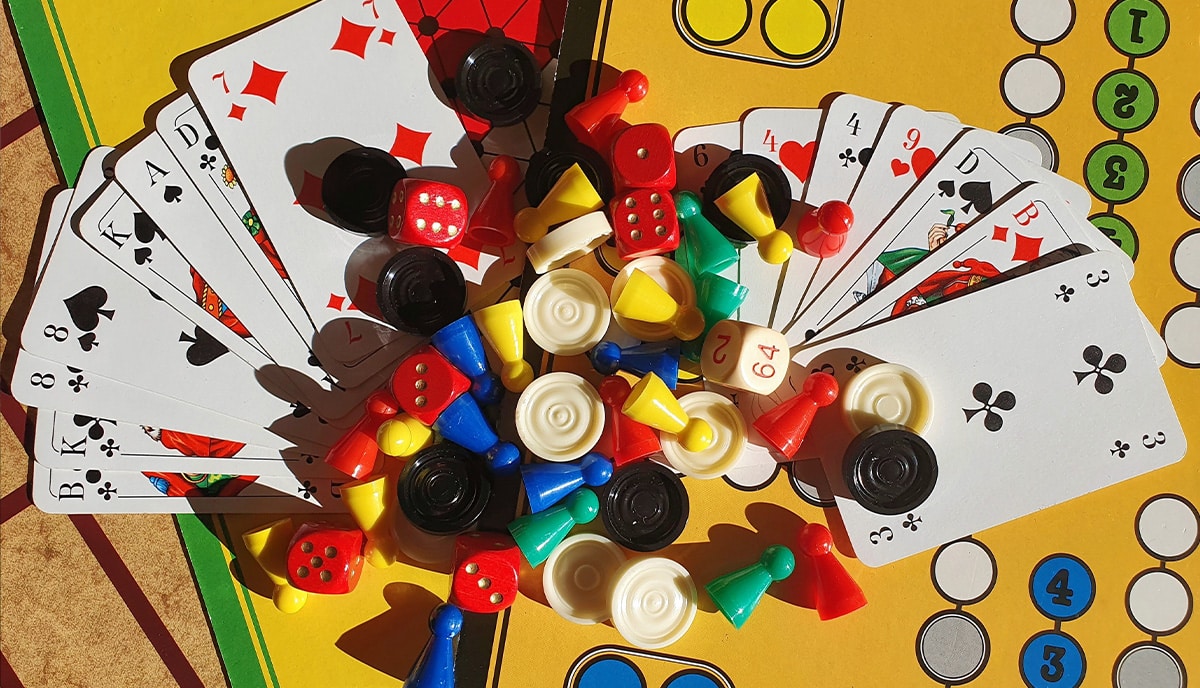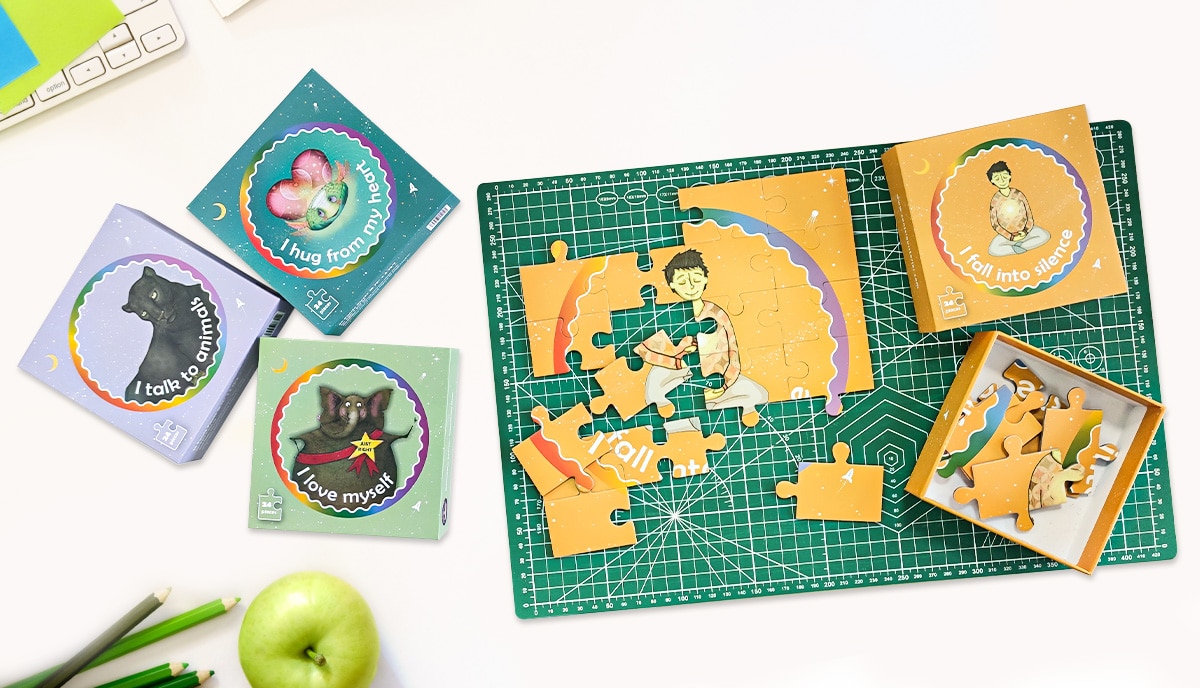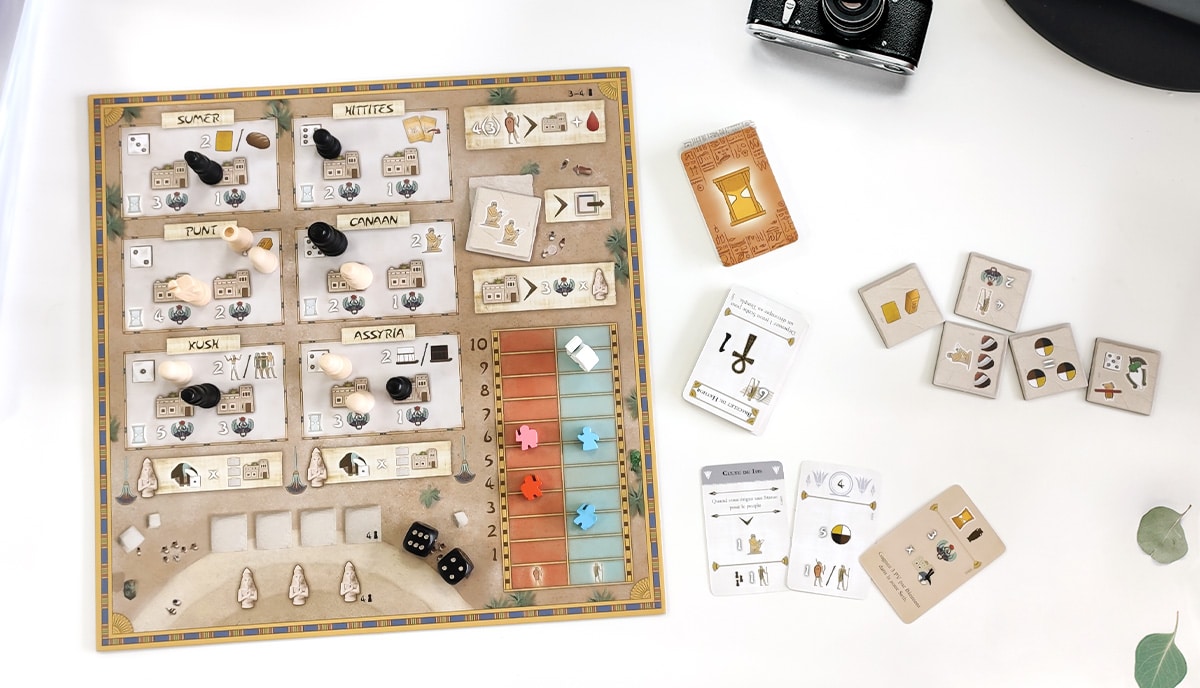If you want to make a successful board game, either for pleasure or profit, make sure you avoid this common goof-up
Photo by Thomas Buchholz on Unsplash
At some point, most people who love board games get the understandable itch to invent their own. It may be that you’re tired of the games already on the market and just want to get down and play a game based on your own ideas. It could also be that you want to make your mark on the industry and have the satisfaction of seeing your game published or self-published. Or maybe, you want to follow in the footsteps of Chris Haney and Scott Abbot, Richard Garfield, or Gary Gygax and Dave Arneson (the creators of Trivial Pursuit, Magic: The Gathering, and Dungeons & Dragons respectively), sell your game to a big publisher, become a multimillionaire, and retire to Barbados.
These are all good reasons to have a go at designing your own board game. If you want to make one just for fun, to play with your friends or take to your local game night, what’s stopping you? If you want to self-publish your game, there’s no reason you shouldn’t get it up-and-running with a successful Kickstarter campaign as others have before you. And if you’re keen to hit the big time, over 400 new games get published every year. Why shouldn’t yours be one of them?
There’s a lot to learn when getting started designing your own game. It’s not going to happen overnight. But before you set out on the long road to publishing your own game — which can be as frustrating as it will definitely be fun — let us share with you one of the most common mistakes that rookie game designers make; the big-picture error that can derail your board game project before you even get started; not playing enough games.
Sorry, what? You’ve only played a handful of games in your life? Um…
As you’ll discover as you go along, game creation is an art form — or can be at its best — and it has a lot in common with literature. Many of the same features map over from game-play to storytelling and back again. And one of the most common obstacles that creative writing teachers report with their new students is that — while they’re all keen to become novelists — they don’t actually read novels!
Now, it’s not usually quite so bad with would-be game designers because the desire to make a game usually comes out of being a gamer. But you’d be astonished by the number of rookie game designers who have never played more than a small handful of games, and most of those kinda outdated ones like Monopoly, Scrabble, and Clue.
But if you want to get taken seriously in the game industry — and also if you want to have a knowledge and experience of gaming that’s deep and wide enough to give you the tools to make your own fantastic game — you will need to play a lot of games. And by a lot, we mean literally hundreds. You should play every game you can find opportunity to play. Here’s why:
- You need exposure to lots of games and lots of gamers to really understand the breadth and depth of the modern gaming industry and the motivations of modern gamers outside your small clique.
- There’s no point reinventing the wheel. Unless you check out a good chunk of the games already on offer, you might just waste your creativity plowing sweat, time, and money into a project that is too similar to something already out there. It’s great to be inspired by other games, and even to jump on the back of a good idea, but you have to do that knowledgeably, creatively, and give it a very unique twist to make it your own. Accidentally creating a board game that’s too similar to an extant game could also lead to accusations of plagiarism and all kinds of legal trouble.
- You need to get a feel for what makes a truly great game and what makes a really crap one. And you need to get the vibe of what and why certain games cause so much excitement. To do that, you gotta play a ton of games.
But, look, this should be fun, right? Go at it with gusto and enjoy every minute. Play the best games and the worst games you can find and everything in-between. Sponge it up and let it all soak in the juices of your own creativity. You’ll be amazed by how much you learn without even trying if you play as if playing is work.
Take this seriously. If you’ve only played Checkers, Snakes and Ladders, Scrabble, Dungeons & Dragons, Trivial Pursuit, and Clue in the past, don’t imagine that will cut the mustard. If you’ve never heard of Magic: The Gathering, Azul, Pandemic, Codename, or Arkham Horror, you need to get out and get gaming.
Game like an industry spy
To take full advantage of all this gaming, you’ll need to take a lot of notes. Game like an industry spy. Imagine you’re on a mission to find out all the hidden secrets behind all the best games and steal them to deploy in your own bid for world game domination. Which is, after all, kinda true, right? Take notes of everything that matters:
- The title, tagline, and key image of each game
- The theme and ‘storyline’
- The mechanics and practicalities of play
- The components
- The win conditions
- Speed of play and overall game length
- Re-playability
Also:
- The reactions and emotional involvement of players
- Each game’s popularity and with whom?
- The age of each game
- The game’s publisher
And while you’re at it, make a record of all your own thoughts, ideas, and responses; not forgetting to capture any inspirations you have for your own board game; mechanics or ideas you could borrow, or ways in which you think each game might be improved.
How you keep these records is up to you, your personal style and preferences, and your creativity. We recommend old-fashioned notepad and pencils or pen because it’s super-portable, you don’t need an Internet connection, the batteries don’t run out, you don’t need to back it up, and it’s dirt cheap. But if you prefer a smartphone app or your tablet, or maybe even a voice recorder and digital camera, go for it. Whatever works is always the right solution.
Infiltrate behind the lines
Continuing with the spy theme — because we’re enjoying it! — make sure to get into as many gaming situations as you can, even if you need to go undercover. So, go to all the game nights you can get to. Join all the game clubs you can afford. Make new friends in the gaming community and angle to be invited along to private game sessions. Go to game conventions, trade fairs, and new game launches. Call up game manufacturers and publishers large and small and ask them if they’re looking for play testers. Get on those lists! Ask questions, try everything out, make contacts.
You needn’t do all this before you start working on your own game. Like other creatives, you’re probably working on it all the time, even in the shower or while you’re asleep. But you should totally consider ‘maxing out’ on all possible game play situations as the first — and ongoing — step toward a successful board game of your own.
Now, go make yourself a coffee and settle down for the long read. Because we’d like you to check out this post: How to Make Your Own Board Game: The Complete Guide for Beginners. It’s long, and it’s super in-depth. Basically, it’s a detailed total guide to everything you need to know to design a successful board game. Go check it now, bookmark it for later; read it. It’ll save you a lot of money on expensive game design books.
Then, when you’re ready to make your prototype game, get in touch. We have decades of experience helping up-and-coming game designers just like you to print and manufacture either a professional-level prototype to tout around trade fairs, conventions, and game publishers; or a batch to send to your Kickstarter supporters; or a long run if you’ve already decided to go the full self-publishing route. We’re friendly, we have the knowledge, and we have the latest technology at our disposal. Now, go get creative. We can’t wait to help you realize the world’s next mind-blowing new board game.





